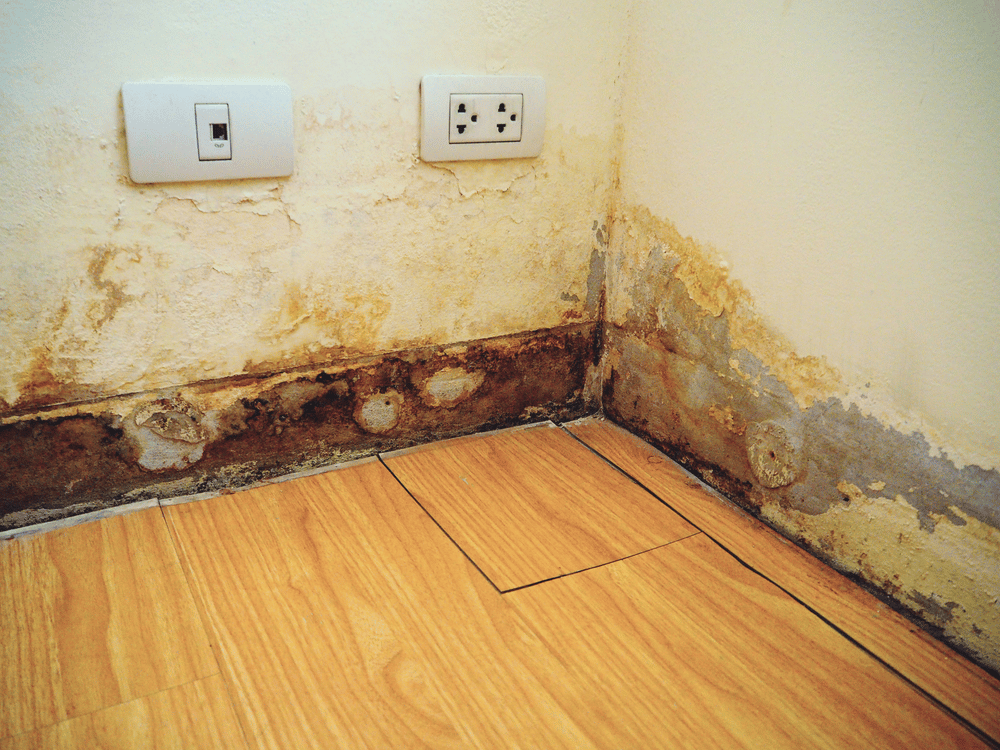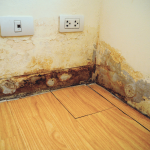Is your basement turning into an indoor pool? It’s not just an inconvenience, but a potential threat to your home’s structure and value. Knowing the cause, whether it’s a downpour, faulty plumbing, or insufficient drainage, is your first line of defence. Immediate actions can include, switching off the power, barricading leaks with sandbags, and pumping out water. But what about long-term solutions? Would basement waterproofing, gutter maintenance, or professional help be the right choice for you? Let’s explore the possibilities and get that basement back to being a dry and usable space.
Identifying the Causes of Basement Flooding
Every homeowner knows that a flooded basement can become a major headache. Before you can fix the problem, you’ve got to find out what’s causing it. There are quite a few reasons why your basement could be taking on water.
The most common culprit is heavy rainfall. If you’ve got cracks in your foundation, that rain can seep right in. Don’t overlook the possibility of a leaky pipe, either. A slow leak can go unnoticed for a long time, causing a lot of damage in the process
Another common cause is poor drainage around your home. If the ground slopes toward your house, you’re likely to have problems. Water should always be directed away from your home’s foundation. If it’s not, you could end up with a flooded basement.
It could also be a problem with your sump pump. These devices are designed to pump water out of your basement and keep it dry. If your sump pump isn’t working properly, it won’t be able to do its job.
Identifying the cause of your basement flooding is the first step towards finding a solution.
Understanding the Implications of Water Damage
Once you’ve identified the causes of your basement flooding, it’s important to understand the implications of water damage. Water damage doesn’t merely inconvenience you; it can lead to serious issues in your home if not addressed promptly and correctly.
One of the major implications is structural damage. Prolonged exposure to water can weaken your basement’s foundation, leading to cracks and instability. It can also damage walls, floors, and any wooden structures, causing them to warp, split or rot.
What’s more, water-damaged areas often become breeding grounds for mold and mildew, which can cause health problems, especially for those with respiratory conditions.
Water damage can also lead to electrical hazards if it reaches your wiring system. This could cause power outages, electrical shocks, or even fires. Not to mention, the potential depreciation of your property value due to the perception of a “problem house.”
Finally, the clean-up and repair costs can be quite steep, especially if professional help is needed. Insurance may not cover all the costs, leaving you with a significant financial burden.
Understanding these implications emphasizes the need for a swift, effective response when dealing with basement flooding.
Assessing Your Basement’s Vulnerability
Before you can effectively protect your basement from flooding, it’s crucial to assess its vulnerability.
Start by identifying the sources of potential water intrusion. Are there cracks in the walls or floor? Does your basement have windows that might leak? Is the landscaping around your home sloping toward the house, encouraging water to flow into the basement?
Once you’ve identified the possible sources of water intrusion, it’s time to evaluate your basement’s drainage system.
Do you have a working sump pump in place? Are your gutters and downspouts directing water away from your home’s foundation? If you’re unsure, it’s always a good idea to consult a professional.
Implementing Immediate Damage Control
When you notice signs of potential flooding, immediate damage control is essential to minimize potential harm. Your first step should be to turn off the electricity to your basement.
Don’t wade into a flooded basement without doing this, it’s simply too risky.
Next, you’ll want to stop the water from coming in, if possible. This might involve sandbagging the area outside your basement, or using towels and blankets to block doorways.
If you’ve got a sump pump, now’s the time to use it.
Once the immediate threat has been dealt with, start removing water. You can use a wet/dry vacuum, but if the flooding is severe, you might need to call in professionals.
Finally, it’s time to dry out your basement. Open windows and doors to let air circulate, and use fans and dehumidifiers to speed up the process.
Don’t rush this part – it’s important to get your basement as dry as possible to prevent mold and mildew.
Permanent Solutions for Basement Flooding
Tackling basement flooding once and for all involves a multi-step approach that begins with identifying the source of the problem.
It’s essential to determine whether the water is coming from an internal source, such as a burst pipe, or an external one, like rain seeping in. Once you’ve pinpointed the issue, you can start implementing the right solution.
For internal leaks, replacing or repairing your plumbing might be necessary.
If groundwater is the culprit, consider installing a sump pump system to redirect water away from your home. Sump pumps automatically pump out any water that collects in a pit dug into the lowest part of your basement.
Another effective strategy is to waterproof your basement. You can apply a waterproof sealant to your basement walls and floor. This creates a barrier that prevents water from seeping in through cracks or porous materials.
Additionally, make certain your gutters and downspouts are clean, functional, and directing water away from your home’s foundation.
Professional Assistance: When to Call In
Despite your best efforts, there are times when basement flooding problems may be beyond your DIY capabilities, and that’s perfectly okay. Not all flooding issues can be fixed with a plunger or a trip to the hardware store.
Sometimes, the problem lies deeper within your home’s infrastructure and requires a professional touch.
So when should you call in the experts? A clear sign is when water continues to flood your basement despite your efforts to fix the issue. If you’ve tried all the basic troubleshooting steps and nothing seems to work, it’s time to call a pro.
Recurrent flooding, even after you’ve implemented fixes, also calls for professional help.
Another sign is if you notice structural damage. Cracks in the walls, sagging floors, or a bowing foundation are serious issues that need immediate professional attention.
Persistent musty odors or mold growth, despite cleaning, also indicate deeper issues.
Maintenance Tips to Prevent Future Flooding
To keep your basement dry and flood-free, regular maintenance is key. It’s vital to inspect your basement routinely for any visible signs of water damage. Look for wet spots or discolorations on walls and floors. These could be early warning signs of potential flooding.
Next, make certain your gutters and downspouts are working properly. They’re your first line of defense against water entering your basement. Keep them clean and clear of any debris, and make sure they’re directing water away from your home’s foundation.
Seal any cracks or holes in your basement walls and floors. Water can seep through these gaps, so it’s important to fill them with a waterproof sealant.
And don’t forget to check your sump pump. If it’s not working properly, it can’t do its job of keeping your basement dry. Test it regularly and have it serviced if necessary.
Lastly, consider installing a basement dehumidifier. It can help control the moisture level in your basement, preventing condensation that can lead to water damage.
With these maintenance tips, you’ll not only keep your basement flood-free but also prolong the life of your home.
So, you thought your basement was just for storing old paint cans and Christmas decorations? Surprise! It’s also a prime location for unwanted water. Don’t panic, though. By identifying the cause, taking fast action, and considering long-term solutions, you’ll have it dry again in no time. And remember, if all else fails, professionals are just a phone call away. Who knew maintaining a dry basement could be such a thrilling adventure?



